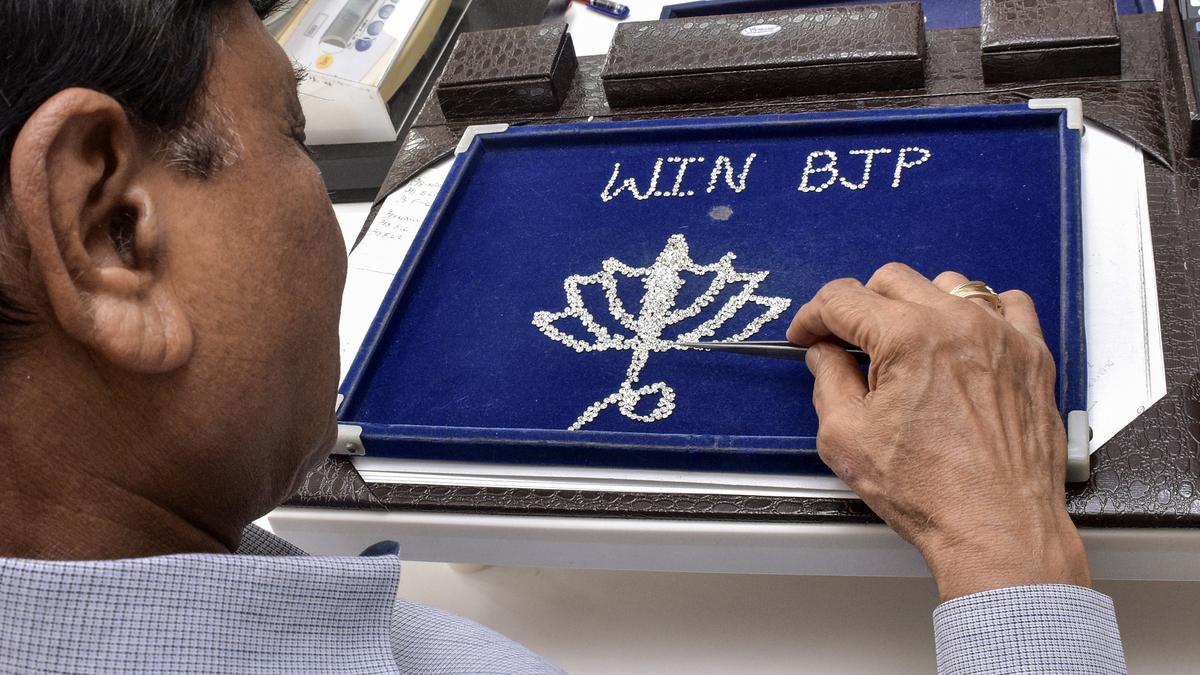
CSDS-Lokniti post-poll survey: BJP faces minor challenges in Gujarat Premium
The Hindu
CSDS-Lokniti post-poll survey: The BJP has a uniform and robust vote share both in Gujarat’s rural and urban areas with almost two in every three voters supporting it but the Congress was able to register a slightly better support of voters from rural areas than in urban areas.
Gujarat continues to be under the spell of the BJP. After winning all 26 seats in the State in 2014 and 2019, this time, the BJP lost only one seat in the State. Even in terms of vote share, the BJP retained its dominance, losing only 13% votes in 2019. In the run-up to the elections, it was being said that there were dissensions within the BJP and also that various social sections, particularly the Kshatiryas were unhappy with it. But the BJP seems to have warded off these challenges. This is not to say that there were no observable changes in how various social sections are aligned with the State’s two major parties. Lokniti’s post-poll study suggests the Congress making some inroads in rural areas and among Kshatiryas as well as the Dalits and Adivasis.
The BJP has a uniform and robust vote share both in rural and urban areas with almost two in every three voters supporting it but the Congress was able to register a slightly better support of voters from rural areas than in urban areas. In urban areas, it tended to lose votes to other smaller players.
Even in terms of the voting pattern among different caste groups and communities, the stranglehold of the BJP is evident. Only the Dalits, Adivasis and Muslims have voted for the BJP in fewer numbers. Both Dalits and Adivasis extended support to the Congress — 46% and 41%, respectively. But consider this: among the Patidars, who have for long been the backbone of the State BJP, the support for the BJP was to the extent of 80%! Though as reported during the campaign, there might have been some murmurs among the Kshatriyas, the BJP still managed to get the support of a large number of Kshatiryas (58%) while a little less than four of every 10 Kshatriyas voted for the Congress. As against the national average of a barely 8% vote share for the BJP among Muslims, in Gujarat, as many as three in every 10 Muslims supported it.
Over and above these variations across caste/community groups, it needs to be noted that among the BJP supporters, 27% said they would have voted differently if Narendra Modi was not the PM candidate. Thus, even though Gujarat has become the strong bastion of the BJP, the Modi factor is equally important in shaping the political choices of the Gujarat voters.
Bhanu Kumar Parmar is the Lokniti-CSDS State Coordinator for Gujarat and Shivani Choudhary is a researcher at Lokniti-CSDS

The girl, who was admitted to Aster CMI Hospital with alarming breathlessness and significant pallor, was diagnosed with Wegener’s Granulomatosis (now known as Granulomatosis with Polyangiitis or GPA), a rare autoimmune condition that causes spontaneous bleeding in the lungs, leading to acute respiratory failure.

ACB files case against IPS officer N. Sanjay in Andhra Pradesh. The official is accused of manipulating the tender processes for awarding contract for development and maintenance of AGNI-NOC portal, and conducting awareness meetings for SC/STs. It is alleged that the total value of properties stolen, or involved in the case is estimated at ₹1,75,86,600.









